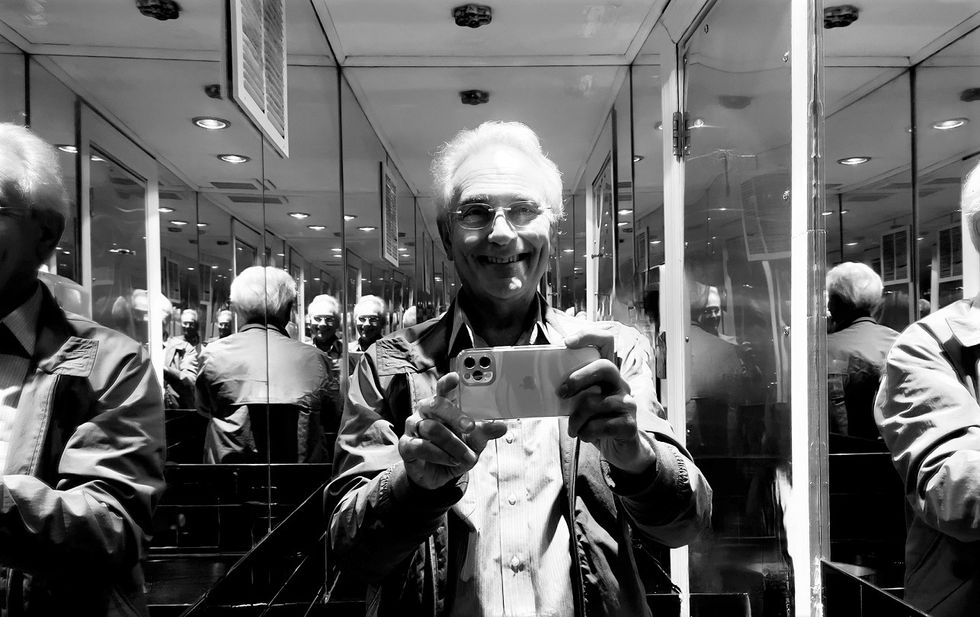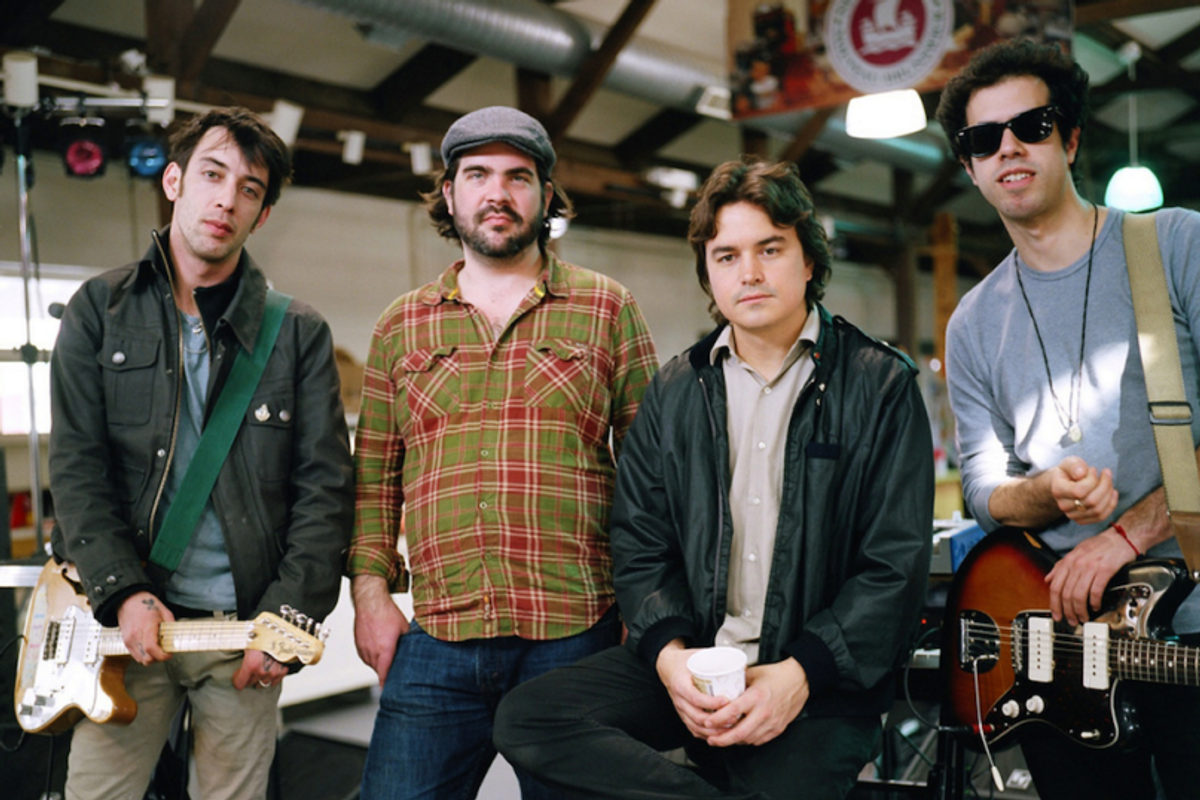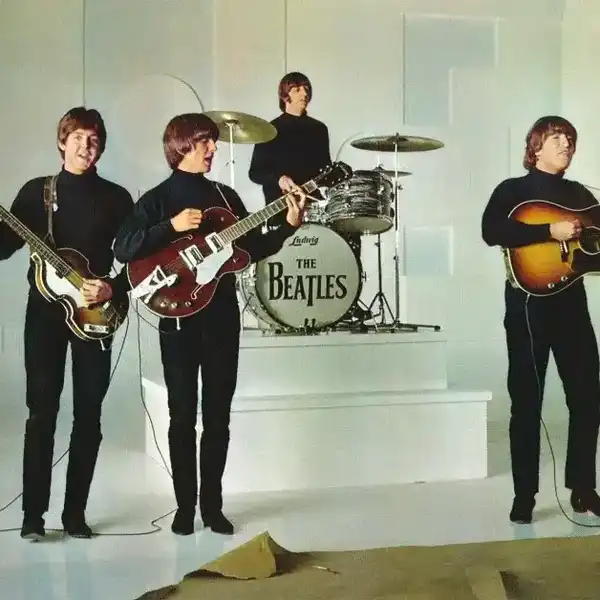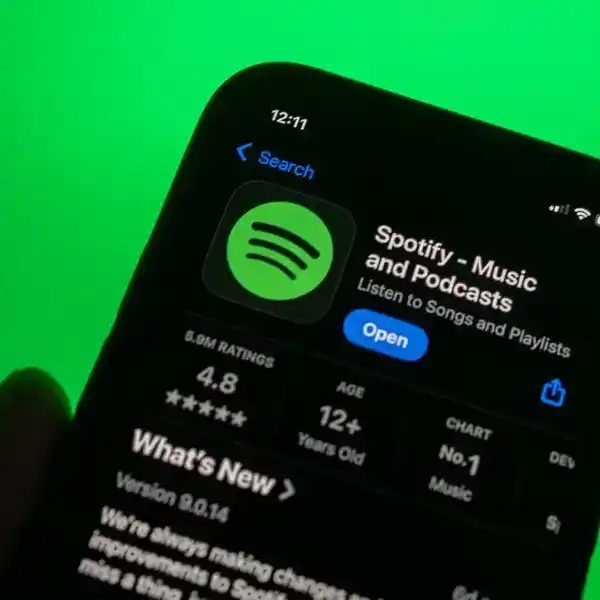John Parikhal: Fixing Legacy Media ...And The CRTC
He's a master of finding clear solutions to complex problems. We've amassed a few here for him so sit back and read on.

By David Farrell
John Parikhal is the kind of person you want on your team if you have a hankering to master the art of political campaigning. A quiet thinker, he's one of the smartest marketing and consumer insights people one can hope to meet, which perhaps is why his professional advice has been sought after by many of North America's top brands and helped media companies coin winning strategies in highly competitive markets.
Born with an analytic mind, his perceptions were sharpened while earning a Master's Degree from the brilliant visionary Marshall McLuhan at the U of T. He also has a BA in Economics and Business. Shortly after graduating, he was approached by Dave Charles who had an idea for a new FM in Toronto. Together they got Allan Slaight to OK the idea and put together an application that was approved by the CRTC, over 14 other applicants, and Q107 was born, with the help of Lee Abrams who joined as a consultant before launch. This led Charles and Parikhal to create Joint Communications, a cutting-edge consultancy firm with a research division that was trend-setting.
For reasons explained in the following interview, Parikhal left Canada and moved to Westport, Connecticut where, among other things, he formed Breakthrough Management (with Philippe Denichaud), advising blue-chip industries on how to be incisively effective in business while building a blueprint for a definable strategy and vision for the company. What follows makes a lot of sense, but readers are warned that some of what he has to say may be unsettling.
Q: After winding down Joint Communications you moved to the US. Was this because of media consolidation in Canada or new opportunities abroad?
I moved to the US for two reasons. One was the much bigger business opportunities in a country of 300+ million people, and the other was that the CRTC had denied our application for a rhythmically focused, ethnically diverse radio station while granting it for a format that had low demand in Toronto – country.
This was 1992. Consolidation hadn’t really started then. We weren’t the only ones applying for the “right” format for Toronto. There were others. We knew it was right because we had researched the demand in advance and were ready to apply for whichever format was most in demand for Toronto. This was all about what a lot more people actually wanted. If another applicant in the “rhythmic” category got the license, I would have been fine with that. However, Country had less than half the demand of the rhythmic format.
The fact that the CRTC consciously ignored such a huge discrepancy in demand led me to believe that what the people asked for was no longer their priority and that perhaps some form of unspoken decision criteria might have come into play. If we had won the license, I would have stayed and been thrilled to launch another station (after Q107) that the people of Toronto wanted. It was a great disappointment and it demonstrated that the CRTC had lost its way.
However, the US turned out well, giving me an opportunity to help hundreds of radio stations, and work for lots of big companies like Viacom. Rolling Stone, and Pepsi, hone my marketing skills and eventually partner with Philippe Denichaud to expand my professional consulting skills in management and business growth. I even got to create a hit TV show for NBC.
Q: I’d be interested in your read on Canadian media today, and what the pros and cons of the CRTC are for the telecommunications industry.
Canadian media is morphing fast. Even the word “media” doesn’t really cover it anymore. Rather, it’s a communications “big bang” where expansion and atomization are warping the old universe. Broadcast is being replaced by engagement and communication. It’s hard enough for the CEOs of Canadian companies to figure out what to do, let alone well-intentioned bureaucrats.
If we go back in history, the CRTC’s role was to regulate media that “owned” a scarce frequency (along with the money that came with it) as long as they served the “public interest.” When there weren’t a lot of options, it made some sense. There was a give and take between regulators and owners to try to serve as many people as possible in a “fair” way. Then, the internet blew that up.
It inverted the pyramid almost overnight. The paradigm moved from scarcity to abundance, from too few choices to too many. The transmitter-dominated communications power began to evaporate as the power of the distribution pipe grew exponentially.
In this new environment, the CRTC is rightly focusing on making sure that everyone has access to excellent, affordable broadband. It’s a huge job and the stakes are enormous. At the same time, the big telecoms want more profit from their chokehold on distribution, whether 5G or broadband, because they can’t figure out what to do with content and creativity. I can see some fireworks coming there.
At the same time, I’m still not sure how many at the CRTC understand how media works or how people perceive based on their communications input. I'm not sure if they know how the interconnectivity of “old” media and “new” media work like a multi-dimensional fan to stir ideas, information, and belief systems into a communications dust storm that spits out everything from Tik Tok to Fox News, from a television newscast to the dark web. To be fair, I haven’t met most of the CRTC team, so it’s possible that they are discussing these issues right now.
Q: What changes would you make as the head of the CRTC?
One thing I know for sure is that it would be a very tough job, attracting far more critics than supporters and too many ungrounded opinions from the press, the public, or the politicians. However, since you asked, here are some of my suggestions for what they are worth.
It’s time to reexamine what the CRTC does and what it might do going forward. After all, it is a “radio and television” commission in an age of apps, pipes, bytes, bots, and especially AI. It’s time to ask how much can practically be regulated, why this matters, and whether Canadians can “connect” through broadcast media the way we used to. If I were running it, I might focus on the downstream consequences of this new technology as it blows up this world, the same way the printing press blew up its world 500 years ago.
I wouldn’t get the same old gang of mostly white, highly educated Canadians to meet in committees to come up with that understanding. Instead, I would start by talking to kids under the age of 15 and build some baselines about how they use “media” and communications tools and what this is doing to them and for them. Then, move on to the over 15s, working our way up to the octogenarians.
Based on those insights, I would pull together a group of outsiders to rethink the role of the CRTC in this big bang future. They would range from teachers to techies and from communicators to influencers. Then speak to the CEOs and the people who are living this future every day. Let’s determine whether we need something different, including possibly eliminating the CRTC, in which case I would have served Canada by working myself out of the hypothetical job you just asked me about.
This creative brain trust idea is the exact opposite of what the government is trying to use right now as it tries to ram through its flawed bill C-11, based on thinking and formulas from the last century.
I would also rattle some cages by asking a few direct questions right now. Why is there almost no diversity among the Vice-Chairs and Commissioners? Currently, they are all women, and they are almost all white. It’s a curious type of reverse discrimination that creeps in when someone tries so hard to right a wrong that they run the risk of creating a new wrong. As anyone who knows me is aware, I’ve been one of the biggest supporters of women in business since I helped start Q107 in 1977, so I ask the political correctness police to hold their fire so we can openly create the best team to help Canadians and communicators.
Q: Media is changing and legacy broadcasters are feeling the pinch. What’s your vision of the landscape in the next 5 to 10 years?
The answer is complicated. The landscape will be shaped by money, most likely private equity and banks. They financed most of the consolidations in legacy media, they are the biggest investors in tech start-ups, and they are very good at dishing out campaign funds for politicians to make sure they can operate in the dark and profit in the light. We have to consider them.
I don’t think they will invest a lot in legacy media unless it’s to swoop in to profit on a distress sale by overleveraged companies. Once the debt is manageable there is a ray of hope.
One of the biggest challenges continues to be the combination of the connected car and the Alexa type of home speaker. On my new Honda, I couldn’t find the AM radio. I had to call the dealership and have them walk me through it. And I was looking for it! While I was looking for it, there was SiriusXM, Spotify, and Apple music up front on the home screen.
It’s the same at home. I get the weather in the morning from my phone, and I can ask Alexa for a podcast about my hobby or listen to BBC London for their take on the news. There’s no shortage of information. And no one wants to wait for what they want when they want it.
For legacy media to kick-start themselves, it’s going to require imagination and the courage to follow it.
That’s a challenge because today many of the most senior people in legacy media are money people. They come out of finance or operations. They worked in tech or telecom. They are handy with a balance sheet and IT.
Unfortunately, the evidence is that they often don’t know what to do about harnessing imagination and creativity, which they need most. We’ve seen the way the big corporations have cut costs by gutting a lot of “content initiatives”. Although profit and costs were cited as reasons, perhaps it’s because real imagination and creativity threaten the status quo.
Think about the power of imagination. It's only 15 years since the iPhone!
It took Steve Jobs’ to even imagine such a crazy idea that we would be able to carry a music library around in our pockets or access news from anywhere anytime. It’s been only 18 years since MySpace and Facebook started, and only 6 years since TikTok was launched. They all came from creativity and imagination. The reason I’m so passionate about this is because much of my own success has come from creating an environment where creativity and imagination can thrive and then focusing on how to monetize it. It’s profitable and fun.
However, there is a place where the money people and the creative people can meet.
I see glimmers of it in the US. It’s basically a very creative use of AI, formatting, seamless tech, and interstitial creativity to generate a compelling local experience by leveraging the very top tier of creative talent. This would satisfy the profit-focused executives as well as the listeners. It’s daring. But it wasn’t that long ago that an app-based Netflix was considered a very risky idea.
This blend of creative power and technology can be done in Canada too. Lower cost. Better product. It even allows for live and local. I’ve started talking to a few people about it and they seem intrigued. I’d be happy to help someone who really wants to take it to the next level. Sort of a back to the future thing – for profit.
Q: Is print dead, or is there a renaissance with younger readers - and can newspapers survive in the digital world?
Real print is getting deader every day because it is inefficient, ecologically destructive, and expensive. However, digital reading is growing. The difference is that people read in shorter and shorter bits as Google search has replaced the front page and the front cover. At the same time, video is growing quickly, especially short clips. There are enormous social costs for this, and it may end up crippling democracy.
Democracy was invented in Greece thousands of years ago with the emergence of the phonetic alphabet, which separated meaning from symbol. It allowed logic to emerge as a concept. Then, 500 years ago, the printing press put democracy on steroids. Reading and writing became the cornerstones for spreading, sharing, and exploring ideas, which lead to the Age of Reason. By reading, thinking, and discussing, we were able to create more stable democracies in the Western world.
Video threatens this because it overwhelms our brains, both the logic and image processing parts. All we can do is react to video, mostly emotionally. Logic shuts down. However, according to a growing body of research in behavioural economics, we unconsciously fool ourselves into thinking we are being logical when watching TV or video and are likely to angrily deny this, rather than acknowledge that we are fooling ourselves. The strange thing is that this is as true of Sesame Street as it is a CTV news broadcast.
This is one reason why I mentioned that for the CRTC to do its job they really have to understand how images and language work on our brains. It’s what McLuhan warned about 60 years ago and what I wrote my Masters’ thesis on.
So, to answer your question – the concept of a “newspaper” is threatened. The production of news for profit is going to grow. The definition of “news” and what is true or not true will be a dangerously fluid concept.
Q: Canadians are watching, many in horror, at the goings-on in the US political sphere. What are your thoughts, and how might Canada best protect itself from the swing to the extreme right being played out by the Evangelicals?
Canada is already moving right and can’t even see it. The longest-running PM in recent history, Stephen Harper, would have been right at home with the Republicans in the US. As Prime Minister, Harper ignored climate change and held on to power because he cut taxes.
Many Canadians were willing to trade “fairness” for money in their pocket, which is the way the GOP came to power in the US. Harper’s political genius was his patience and willingness to play the long game for his evangelical focus.
The way to stop a further swing to the far right in Canada is to keep a close eye on sources of focused repetitive lies whether on legacy or cable media or online. It’s also about expanding the dialogue about fairness and inclusiveness without making it an us-versus-them, which is what happened in the US. It’s a long-term play that requires great educational systems for the population.
A very important factor is livable and affordable housing because those who “have” tend to have less sympathy for the “have-nots”, even if they were a “have-not” at one time.
I have faith that Canada won’t get as bad as the U.S. for lots of reasons but mostly because Canadians are comfortable shifting their definition of themselves.
Over thirty years ago, Peter Gzowski, a CBC host, created a national contest asking for the definition of a Canadian. The winner was, “As Canadian as possible under the circumstances”. It’s still my all-time favourite.
Q: You have shared your concern about the demise of AM radio. What’s behind this and what can be done to ensure survival?
I touched on this earlier in our interview. For AM to survive, it must be really compelling, probably highly contrarian. It has to be front and center on a car radio and on home voice centers. Or it needs such a compelling “call to action” that people will seek it out. It needs to fuse creativity with technology, especially AI. It has to make money – which might mean rethinking everything to do with commercials, which haven’t been seriously considered on radio forever. That’s just a start. And, it has to address a seriously flawed ratings system that stifles innovation. I’m not sure who has the guts or persistence to take this on.
One of my concerns for AM is from a national security standpoint – both in Canada and the US. If a well-targeted cyber-attack happened at the same time a big weather event hit cell towers and electrical grids, our current emergency communication systems would fail. No cell phones, no internet, no nothing. We saw it in the ice storms a few years ago. A true cyber-attack might knock out the electrical grids without the need for a storm. In that case, the only thing between chaos and safety in connecting the country would be big 50,000-watt clear channel AM stations that reached everyone, along with crank radios.
In the US, FEMA has been working to create bombproof bunkers so that AM transmission can continue in the event of a crisis – but they have a long way to go.
Q: What do you think about radio and legacy media marketing these days?
The marketing (on-air and off) hasn’t grown up and is underfunded. On-air promos are mostly self-centred bragging about how they are #1 or how much music they play. There is very little imagination or creativity.
There are few ads for radio out there, which is one reason it’s dropping off people’s radar. The ads for TV haven’t evolved over the past 40 years. This might be because the money people are looking for something that is cheap, doesn’t rock their boat or challenge them, and can be used across a lot of markets. Using this type of criteria, they choose their ad agencies accordingly. It’s no different in the US.
It's disappointing to me that Canada went to England and the US to license “brands” like Virgin and iHeart and couldn’t come up with anything better themselves. Come on, this is the country of SCTV, Trailer Park Boys, Neil Young, Jim Carrey, Seth Rogan, Drake, David Cronenberg, and so many more. We can do better, and I’d like to challenge those in charge to start trying harder.
So, there it is David. In summary…
There’s hope for AM although making it work might feel like walking along the edge of a razor blade. The CRTC needs a real rethink, including insulating it from political and financial influence – not just another repapering of the room.
The big executives and the smaller independent owners can both make more money and serve the public better if they work with innovators who know how to fuse imagination, creativity, formatting, and AI. It’s not a case of having either profit or creativity, which is the oppositional thinking left over from the last century. And, high-speed, high-quality universal broadband (and 5G) will provide huge benefits, financial and cultural, for Canada.

















